UP IHR Director takes part in the Global Event on the 25th Anniversary of the 1996 Child Protection Convention
On October 19, 2021, the Hague Conference on Private International Law (HCCH) in The Netherlands celebrated the 25th Anniversary of the 1996 Child Protection Convention. The global event commemorated the advancement and promotion of the protection of all children across the world since October 19, 1996. In the global forum, distinguished experts among them judges, professors, litigators and child rights advocates discussed the historical significance of the Convention, its present development, and its future aspirations of ratification and accession for the next years.
According to the Secretary General of the HCCH Dr. Cristophe Bernasconi, the diversity of cultures and legal traditions among States can be harmonized with the Convention’s adaptability to achieve a unified system of child protection across the world. He noted that there has been a consistent increase in the number of the Contracting Parties of the Child Protection Convention, which as of August 2021, was 53 Contracting Parties. While acknowledging this pace of ratification and accession, Dr. Bernasconi called for wider support for the Convention.
Invited to make the case for the Philippine accession to the Convention, UP Institute of Human Rights (IHR) Director Prof. Elizabeth Aguiling-Pangalangan discussed the current legal framework of child protection as well as priority child protection issues in the Philippines. She spoke on the Philippine legal framework for child protection that includes the Constitutional guarantee of the right of children to “protection from all forms of neglect, abuse, cruelty, exploitation” and Republic Act 7610, or the Special Protection of Children Against Abuse, Exploitation, and Discrimination Act that expresses the State’s policy to “carry out a program for prevention and deterrence of and crisis intervention in situations of child abuse.”
Despite the existence of these laws, Prof. Aguiling-Pangalangan identified several priority child protection issues in the country, chief of which are parental disputes over the child as a consequence of the surge in the number of legal separations and terminations of marriages, increase in the number of families and spouses living apart due to overseas employment, the decrease in the number of marriages and the rise of births of children outside of marriage. She referred to the Child Abduction Convention, which the Philippines ratified in May 2016, that will be reinforced by our signing the Hague Child Protection Convention. Other child priority issues the Professor expounded on were the lack of registration of children, commercial sexual exploitation, and physical and sexual abuse. Prof. Aguiling-Pangalangan then pointed out positive steps taken by the government in addressing these priority issues such as the organization of the DOJ Task Force on the Welfare of Children in 2011, which was tasked to facilitate and monitor cases involving children, and strengthening the mechanisms to prevent the movement of traffickers in the entry and exit points of the country led by the Committee on Special Protection of Children (CSPC), among others.
As an amplified response to the challenge of resolving the priority child protection issues in the Philippines, Prof. Aguiling-Pangalangan recommended the next steps that the Government should take. First, there should be a determination of new categories of children in need of protection as a result of modern forms of technology, among them children born to surrogates. Second, after a reassessment of existing categories of vulnerabilities there should be new legislation to address these nascent threats. Third is the necessity for cooperation and referral mechanisms among states and this is where Professor Aguiling-Pangalangan underscored the Philippines’ accession to the Child Protection Convention will play a significant role.
Various speakers in the forum emphasized that the Child Protection Convention is especially relevant today, in view of the COVID 19 pandemic which placed significant restrictions on the interaction of cross-border families.

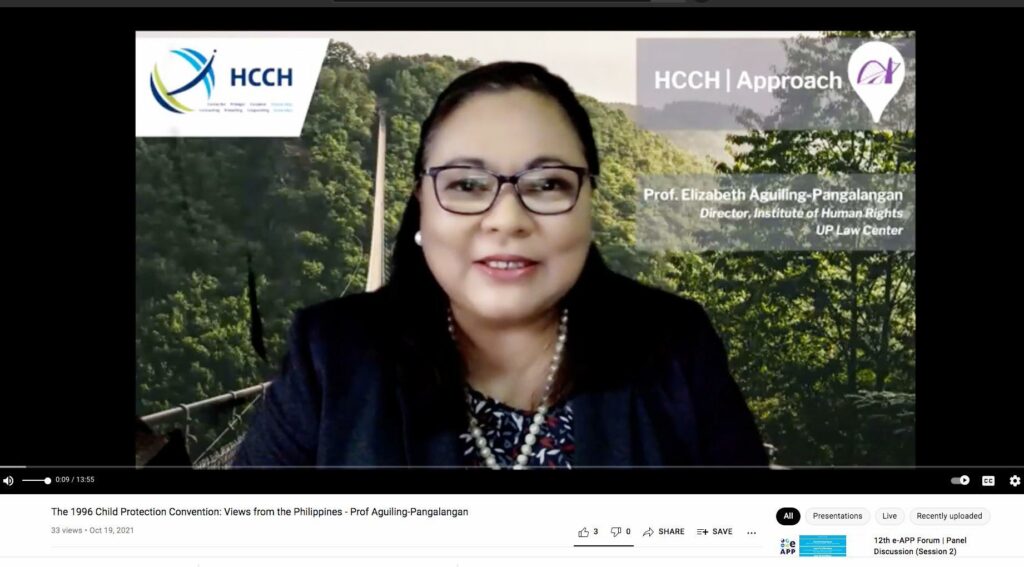
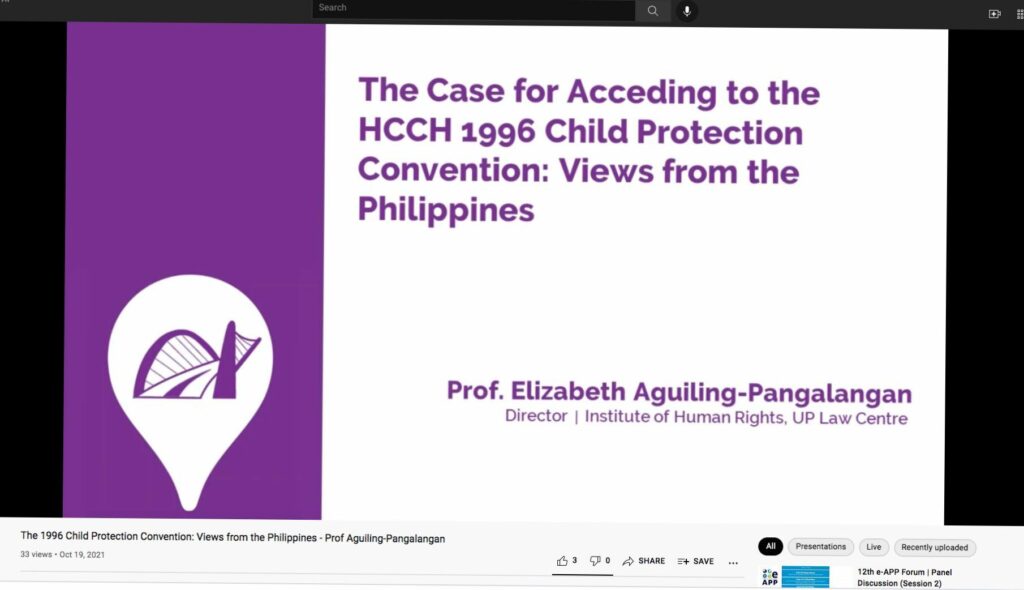
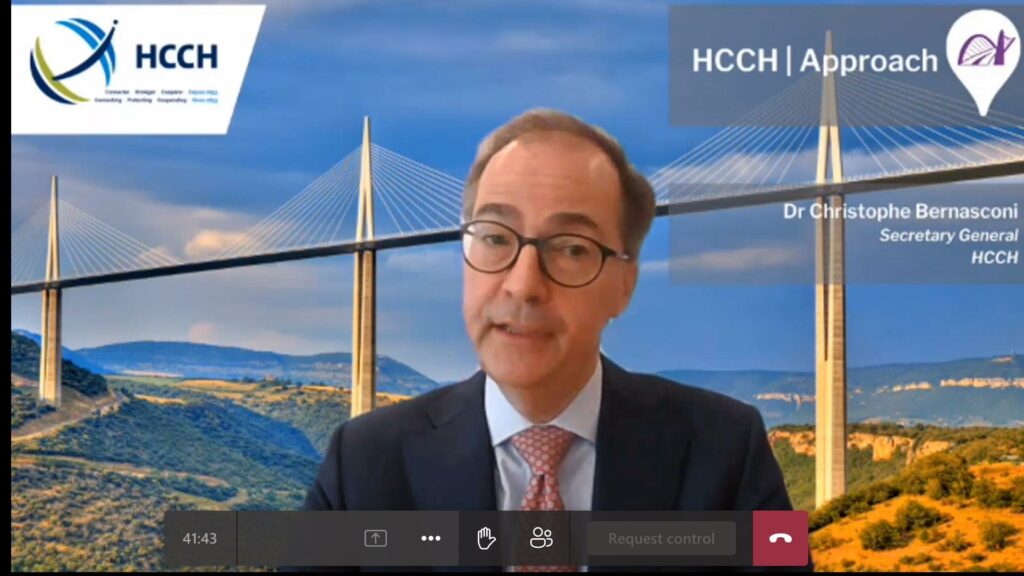
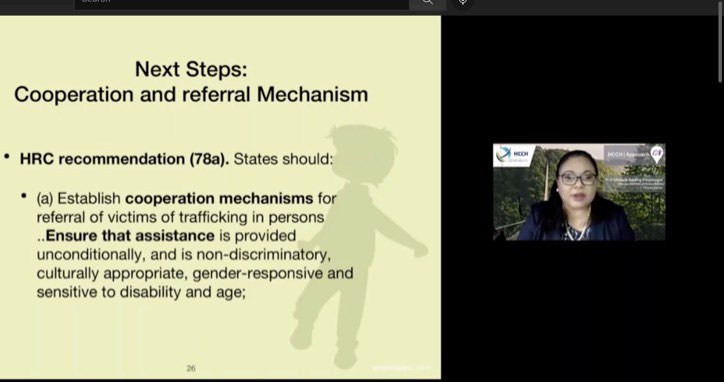
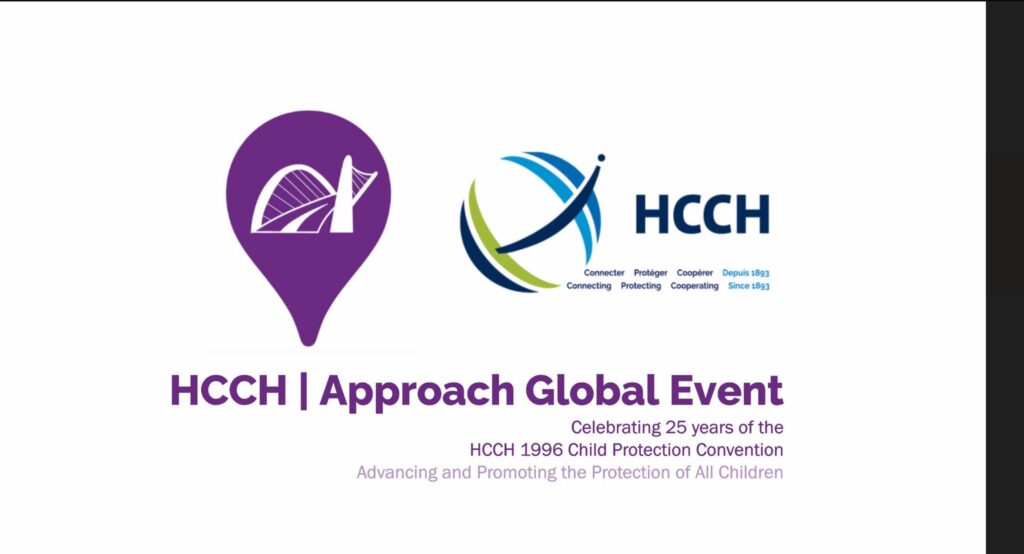
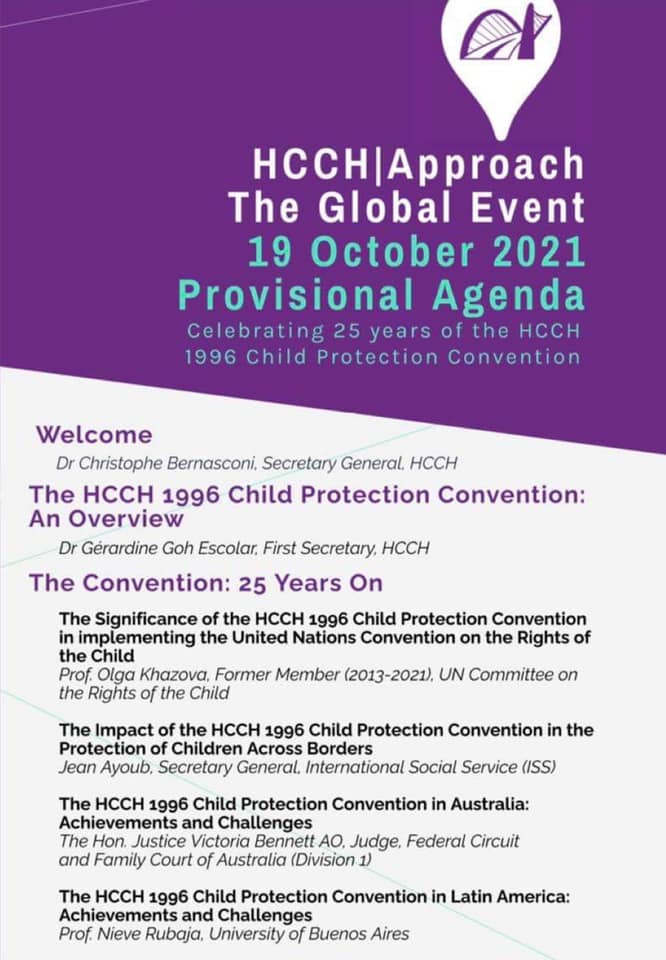
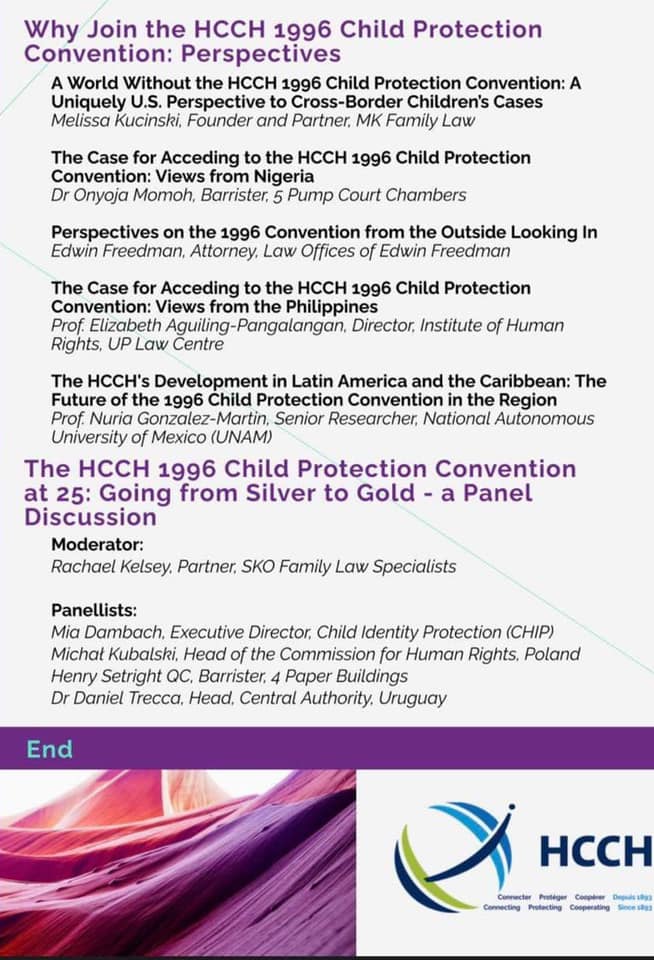






































































































 on the upper right corner to select a video.
on the upper right corner to select a video.